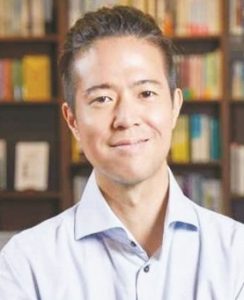
By Joseph Juhn
The author is a documentary filmmaker of “Jeronimo” and “Chosen”.
[Second of three-part column: 70 year of US-ROK alliance]
On July 27, Washington, DC saw a series of events unfold. On one side, celebrations marked the signing of the Armistice Agreement and the 70th anniversary of the US-ROK (Republic of Korea) alliance. On the other side, there was a march by activists and citizens advocating for an end to the Korean War and a pursuit of peace on the Korean Peninsula.
The former highlighted the significance of liberal democracy as the foundation of the alliance and expressed concerns over North Korea’s persistent military provocations. The latter reflected on the failed North Korea policies over the past 70 years and emphasized peace through dialogue and compromise, urging the passage of the H.R.3446 – Peace on the Korean Peninsula Act – currently pending in the U.S. Congress.
According to New York Times columnist David Brooks, individuals interpret themselves and the world through a “master narrative” shaped by their upbringing, genetic predispositions, cultural backgrounds, religious beliefs, and more. These narratives can aid our comprehension of the principles and phenomena of the world, but it can also confine our desires and perspectives within a single framework.
Oversimplifying the intricate layers of history and international relations into a singular narrative can lead us into the error of seeing everything in black and white, a realm of absolute good and absolute evil.
In a previous column, I advocated for the necessity of creative narratives through the concept of “diaspora” to overcome the moral and logical insufficiencies of the dominant narrative that characterizes the 70th anniversary of the US-ROK alliance, some of which include anti-communistic and uncritical glorification of the inaugural Korean president and the role of the United States.
To be sure, it is imperative to commemorate the honorable sacrifices and efforts of the previous generations who lived through the Korean War and the Cold War era. But it’s also essential for the members of Korean diaspora to reevaluate the US-ROK relations through a more universal narrative that diverge from nationalistic and ideological discourses.

In this context, the family story of Marilyn Strickland, a member of the U.S. House of Representatives and featured in my documentary “Chosen,” could serve as an alternative narrative to commemorate the 70th anniversary of the US-ROK alliance. Representative Strickland, born to an African American father stationed in Korea post-Korean War and a Korean mother, personifies a distinctive narrative.
In 1962, the year she was born, racial discrimination against African Americans was institutionalized in the United States, and interracial marriages were illegal. Until the Immigration and Nationality Act of 1965, Asians, including Koreans, were officially barred from immigrating to the United States due to the racially biased immigration policies aimed at maintaining the U.S. as a predominantly “white” nation consisting of those from Northern and Western Europe. Conversely, in South Korea, women married to U.S. soldiers endured significant prejudice and social stigma.
Not all Korean women, often referred to as “war brides” or “GI brides,” were associated with the military “camp towns.” But even for those who were, they were essentially institutionalized victims of the US-ROK alliance.
Recently, in September 2022, the South Korean Supreme Court officially acknowledged that the South Korean Government had directly established and operated the military camp towns near U.S. bases as part of US-ROK military alliance, and ordered compensation for the victimized women.
These women could be considered as victims of the same systemic injustice that affected comfort women. It is our collective responsibility to honestly confront not only remarkable achievements but also some of the inhumane and undemocratic actions undertaken in the name of US-ROK alliance.
Strickland’s family migrated to the United States when she was two years old. From the onset, they encountered challenges in finding accommodation that would accept a Black-Korean couple and their newborn. An estimated 100,000 U.S. military brides, like Strickland’s mother, arrived in the United States post-Korean War, providing financial support to their families in Korea and laying the groundwork for the Korean American community by inviting their relatives to join them in the future.
This information is documented in the Encyclopedia of Overseas Korean Culture. These women played a pivotal role in fostering cultural, social, and economic ties between Korea and the United States. However, their narratives are conspicuously absent from the overarching story of the 70th anniversary of the U.S.-Korea alliance.
Strickland attributes her ability to fully embrace her existence, born between the tragedies of racial discrimination and the Korean War, to her mother’s love and teachings. Born at the Yongsan U.S. Army Base in Seoul, her journey to becoming the first Korean American woman elected to the U.S. House of Representatives is a deeply moving narrative that transcends any nationalistic or ideological discourse.
In fact, most Korean Americans identify themselves as boundary-crossing, intermediaries in U.S.-Korea relations. They possess the capacity to think broadly, holistically, and transcendentally between the two nations. Nevertheless, as Professor Namsoon Kang points out, mere physical presence in a foreign country doesn’t inherently make one’s consciousness and way of life “diasporic.” It’s important to transform “socially imposed marginality” into “critical marginality” and shift from past ideological and nation-centered thinking to universal and innovative reasoning.
The significance of the 70th anniversary of the US-ROK alliance will gain further depth when Korean Americans become proactive agents of their own peripheral, diasporic narratives instead of passive objects of the national narrative.




